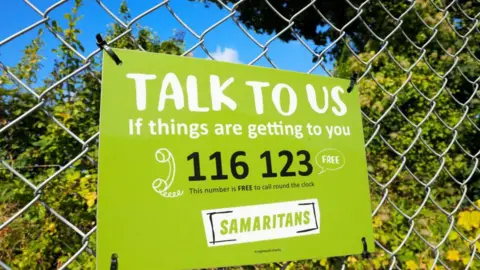The Samaritans, a prominent charity in the UK and Ireland dedicated to suicide prevention, have announced plans to close over 100 of their branches. This significant restructuring effort, which could see “at least half” of their current branches shut down, has raised concerns among staff members and volunteers, some of whom are fearing a potential decline in the number of volunteers willing to contribute. Michael Buchanan, a social affairs correspondent, has reported on the developments leading to this decision, emphasizing its implications for both the organization and the communities it serves.
Founded in 1953, the Samaritans primarily aim to prevent suicides by connecting trained volunteers with individuals in need of support. The organization has garnered a reputation for its effectiveness, reportedly answering a call for help every ten seconds. However, during a recent presentation to staff, Chief Executive Julie Bentley stated that the sheer number of branches is unsustainable, suggesting that continuing to maintain over 200 sites is hindering their ability to deliver high-quality service. This claim has been met with skepticism from numerous volunteers, particularly those concerned about the potential loss of the personal connection that comes from local branches.
The proposal to close branches was detailed in a video message sent to volunteers. Bentley indicated that they do not have a definitive figure on how many branches are necessary for optimal operations but foresees a drastic reduction in the current network over the next seven to ten years. She noted this would likely involve consolidating services into larger regional centers, with plans for implementing these changes beginning in April for the UK, while extending to Ireland by 2027. The specific branches slated for closure have not yet been determined, contributing to the anxiety among many dedicated volunteers.
Internal forums reveal that over 50 branches, accounting for more than a quarter of the organization’s total branches, have expressed concerns regarding the proposed changes. Many cited worries that moving to a more centralized system, incorporating remote volunteering, could detract from the vital support services currently provided. Volunteers have articulated fears about handling sensitive calls alone at home, indicating that the prevalent issues dealt with at the Samaritans, including suicide, can be daunting without the immediate support of fellow volunteers.
Furthermore, vulnerable demographics, such as female volunteers, have raised alarms about the risks linked to remote working, especially considering the abusive and sexual calls received. Bentley shared in her communication that some local branches could no longer retain enough volunteers and were failing to meet service delivery standards. Many remain unconvinced that the proposed restructuring will enhance service delivery, raising concerns that the charity might be sacrificing its core values in favor of a more professional and perhaps impersonal model.
Despite the pushback, the Samaritans have reaffirmed their commitment to offering uninterrupted services 24/7. Bentley emphasized the need for change to better accommodate the evolving needs of both callers and volunteers. She assured stakeholders that the organization is actively engaging volunteers in discussions around the proposed changes, aiming to assure that increased capacity will be achieved without sacrificing the heart of the Samaritans’ mission: providing compassionate assistance during crisis moments.
In conclusion, the proposed branch closures by the Samaritans present a contentious issue, unraveling decades of practice in local volunteer engagement. While the assertions of improved efficiency aim to address operational sustainability, the potential loss of community connection remains a significant concern among dedicated volunteers. As discussions continue regarding the future structure of the charity and how best to support those in need, it remains to be seen how the balance of efficiency and personal touch will be navigated by the Samaritans in this evolving landscape.












